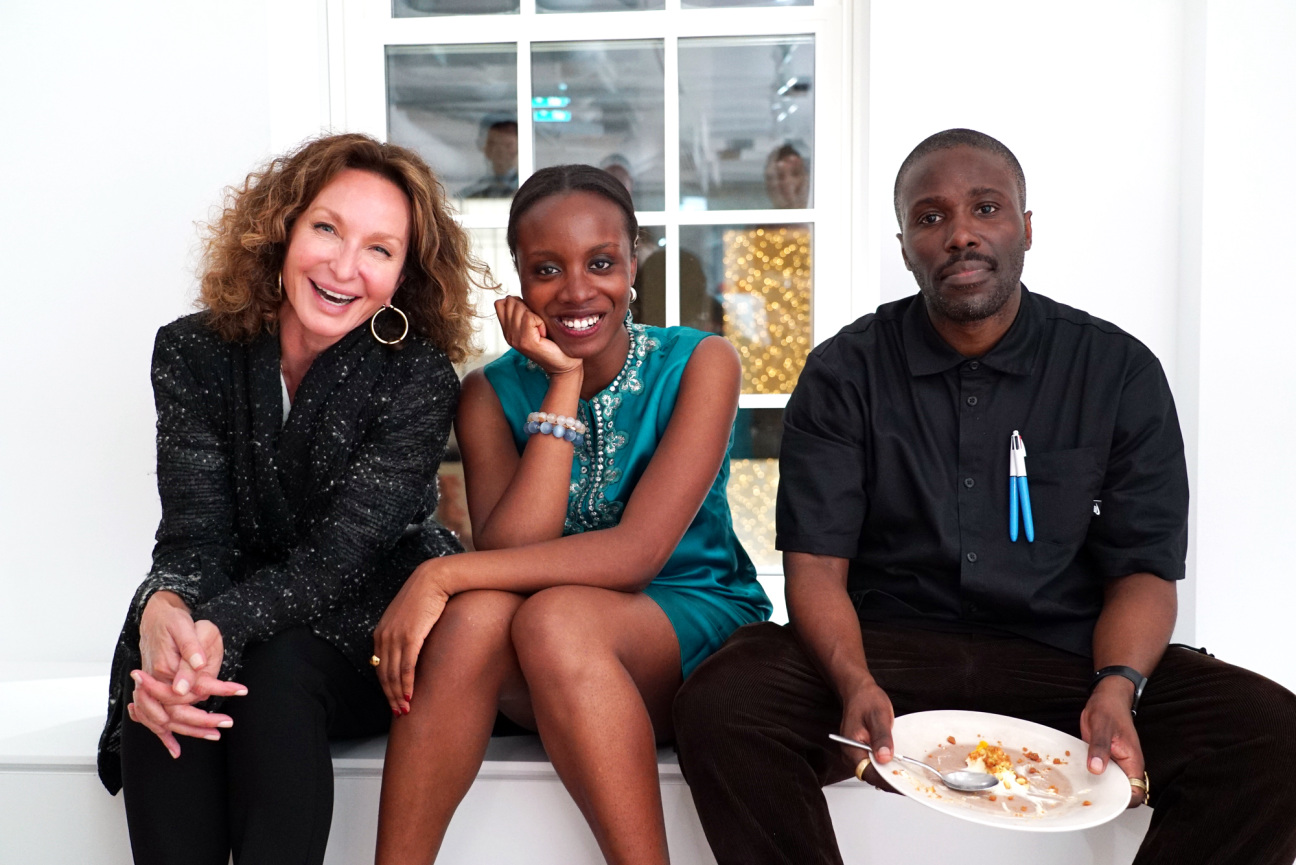
For ‘It’s Moving Away From Blackness as a Monolith’: Art Historian Alayo Akinkugbe Gives Black Figuration a New Lens at Opera Gallery and Akwasi Brenya-Mensa, one title is just inaccurate.
Akinkugbe—the art historian behind the Instagram @ablackhistoryofart and the podcast A Shared Gaze—is fresh off the pages of British Vogue. Not one to slow down, she curated “The Whole World Smiles With You,” an exploration of Black figuration which opens today at Opera Gallery’s London outpost and runs through June 26. Featuring works from Amoako Boafo, Adjei Tawiah, and Thelonious Stokes, the show presents an opposition to the Western canon, provoking and subverting in turn.
Not to be outdone, Brenya-Mensa, who ran the Pan-African restaurant Tatale and was voted EATER London’s Chef of the Year in 2022, had a past life as a DJ, a practice which he still engages in when cooking. To commemorate the occasion, he crafted an experiential dinner inspired by Akinkugbe’s curatorial work, the genesis of which took place in this conversation. Here, the two creatives talk creative bandwidth, soundtracks, and what’s next for their multidisciplinary practices.
CULTURED: This is the first time that you two have met, and Akwasi will create an experiential dinner to commemorate the show. How did this collaboration come to be?
Alayo Akinkugbe: In January, Opera Gallery reached out saying that they wanted to do an exhibition of Black portraiture. I didn't feel comfortable being labeled curator if all of the works were already in their inventory, so I decided to invite other artists who wouldn't normally be represented. Jazz Grant is a London-based collage artist, and I wanted to put her work with Deborah Roberts, who's [an] established collage artist in the US. This exhibition would have happened even without me, but it's changed shape because of the artists that I brought into dialogue.
The title comes from Louis Armstrong's 1929 song, “When You're Smiling, The Whole World Smiles With You.” I was thinking about this renewed interest in Black figuration since 2020: These paintings have been everywhere, especially that school of Ghanaian contemporary artists who paint vivid, bright scenes from everyday life. They were a visual respite in 2020 when imagery of George Floyd circulated, to see a positive representation of a contemporary Black person as opposed to the horrible videos on social media. It spoke to this idea that a happy image of a Black person was a lot easier for the art world to engage with than the more difficult stuff, and it was an easy way to show representation.
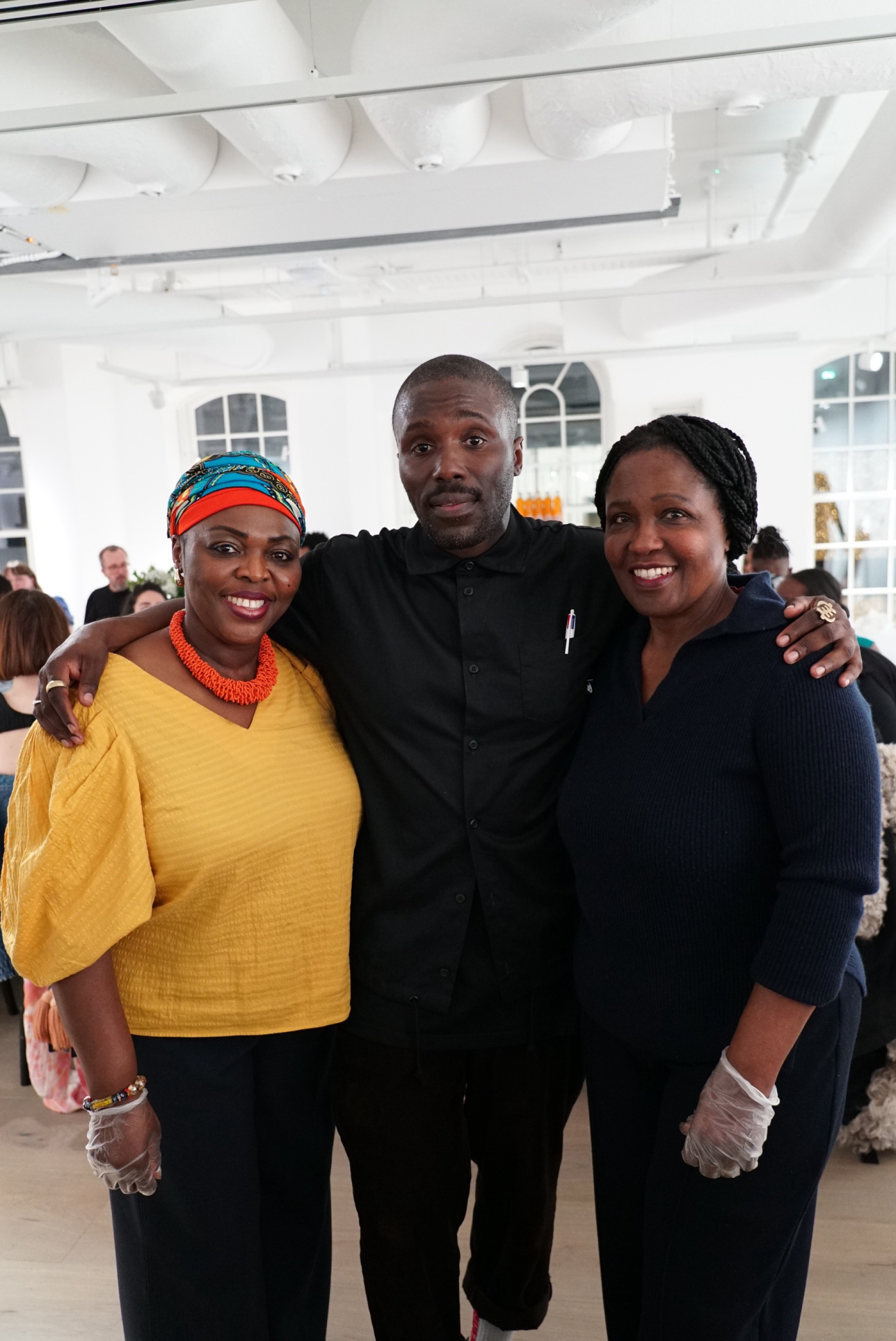
Akwasi Brenya-Mensa: I did an Opera Gallery dinner in March 2023 for Adjei Tawiah’s solo show in New York. I met Adjei the January before, and we got to talking. [It] all came together quite quickly. I had a tour of Amoako Boafo's studio in Ghana in January. It was probably the first time that I saw some of these works. I'm quite tired of the pain and trauma aspects of these expressions, so seeing ordinary people doing ordinary things, it was really dope. Then to be asked by the artist to come and do the food in a way that also felt everyday—at least true to how we consume food in celebratory fashion, party buffet style—was joyful.
Akinkugbe: The first section of the exhibition is very much about those scenes from everyday life. It's got Amoako Boafo and Adjei Tawiah’s works in dialogue. Then the basement section will be all of the distortions and caricature, more dark things. The buffer in the middle will be an artist called Thelonious Stokes who will respond to the European canon but replace the figures with Black figures.
Brenya-Mensa: I've developed a bit of the menu, but [it’s] subject to a longer conversation. Congratulations again. I really want to put together something that is worthy.
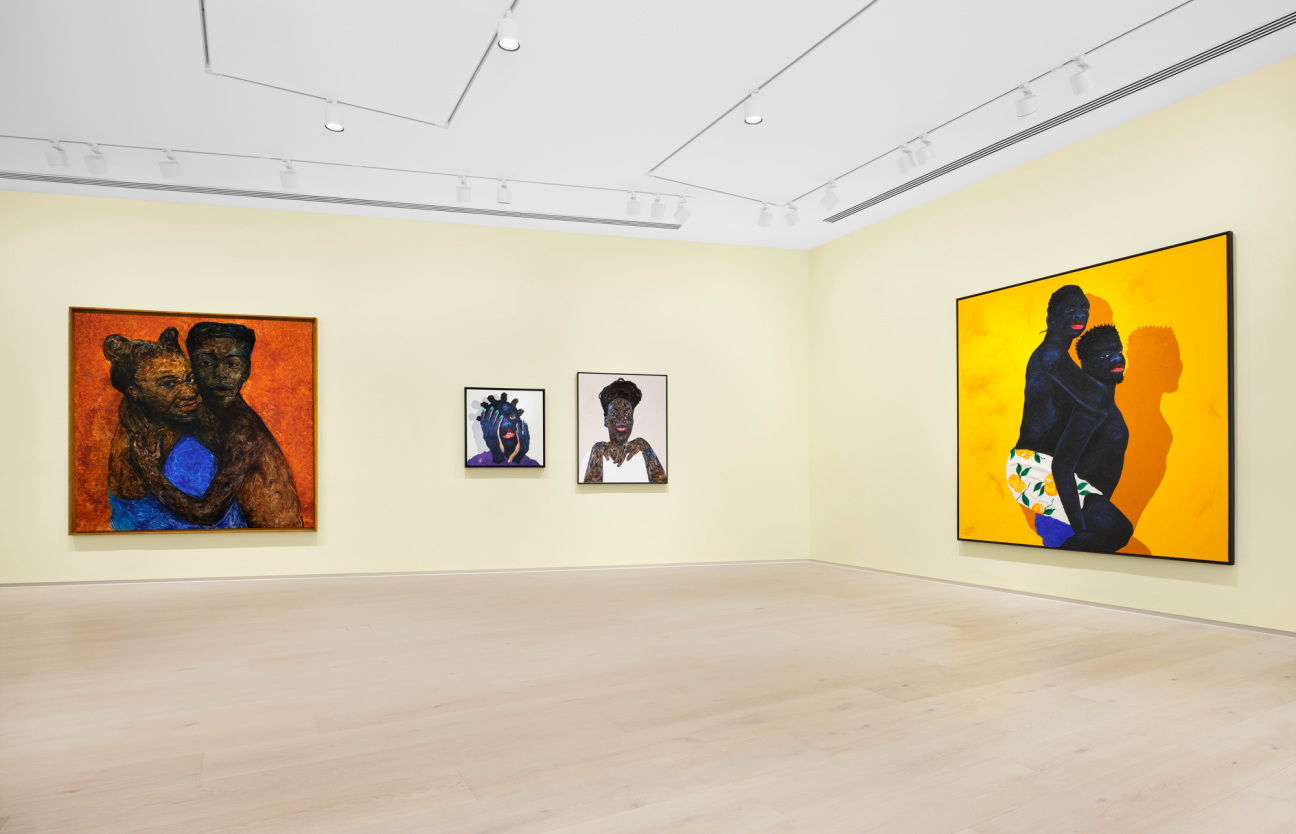
Akinkugbe: I'm 100 percent sure that you will. Food is a big part of the art world and art openings. How do you approach something like this?
Brenya-Mensa: Whether it's [with] the curator or the artist, I definitely like to have a conversation and understand what they are about, where they are from, what foods they like. Then I take all of that information and use it to create that night's experience. With Adjei, the everydayness was why we didn't go with a sit-down dinner because we felt it was more reflective to be casual. Creatively, what I will hone in on is you, because you're the link.
In the way you've spoken about the resurgence of Black Lives Matter and the response to the art world, I feel like that happened across a lot of creative disciplines. Going from much less representation to then everyone wanting to address their diversity in a short time was strange. The reflection of that on the food side is starting to see more of a spectrum in the UK. Up until five years ago, the majority of our expressions were definitely very takeaway, very neighborhood. Now we've started to see the higher end. I was in the premium casual space. It’s encouraging to see ourselves. You don't have to just be one thing.
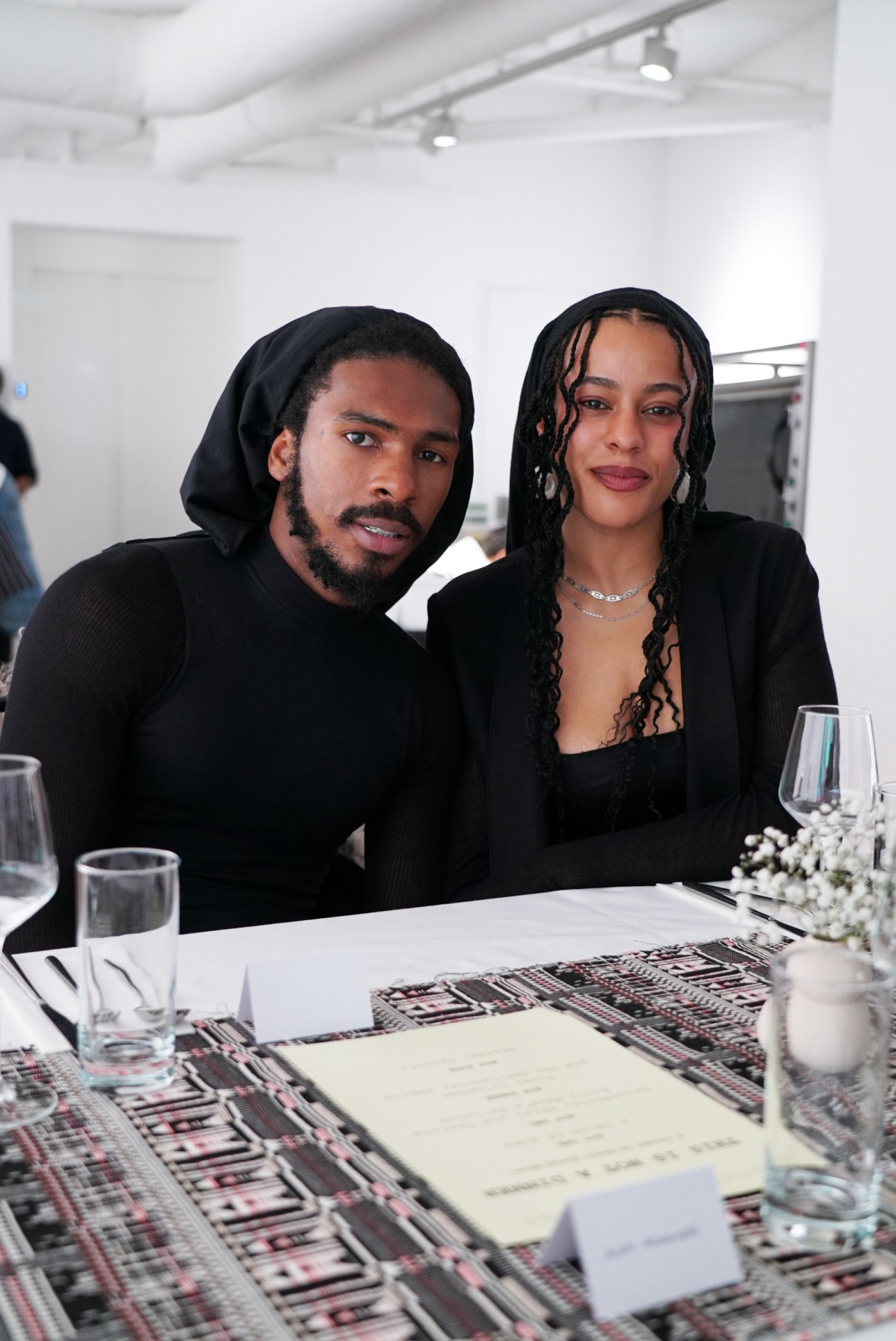
Akinkugbe: It's moving away from Blackness as a monolith, and the different ways that you can exist as a Black person. With Black figuration, lots of people were buying these paintings, but now their popularity is dropping. When I was first asked to do this show, I was a bit skeptical. I was like, “There have been so many exhibitions of Black figuration. Is this going to be well received or are people just going to be like ‘another one?’” There's been the Harlem Renaissance, the Black Arts Movement in the ‘80s. Things pick up and then die down again. I wonder if you think this will continue. I feel like the culinary space is different.
Brenya-Mensa: It's probably the same. I definitely saw how 2020 affected me and benefited Black restaurateurs in terms of footfall and press. With food, we've managed to get ourselves out of being a trend. West African food is perhaps the new trend. It’s definitely a bit of a phase, but the best use of these moments is to create infrastructures. It's interesting that when you were asked about it, you thought, Oh, is this just another one? But it can't be just another one: You haven't done this before. It's something completely new.
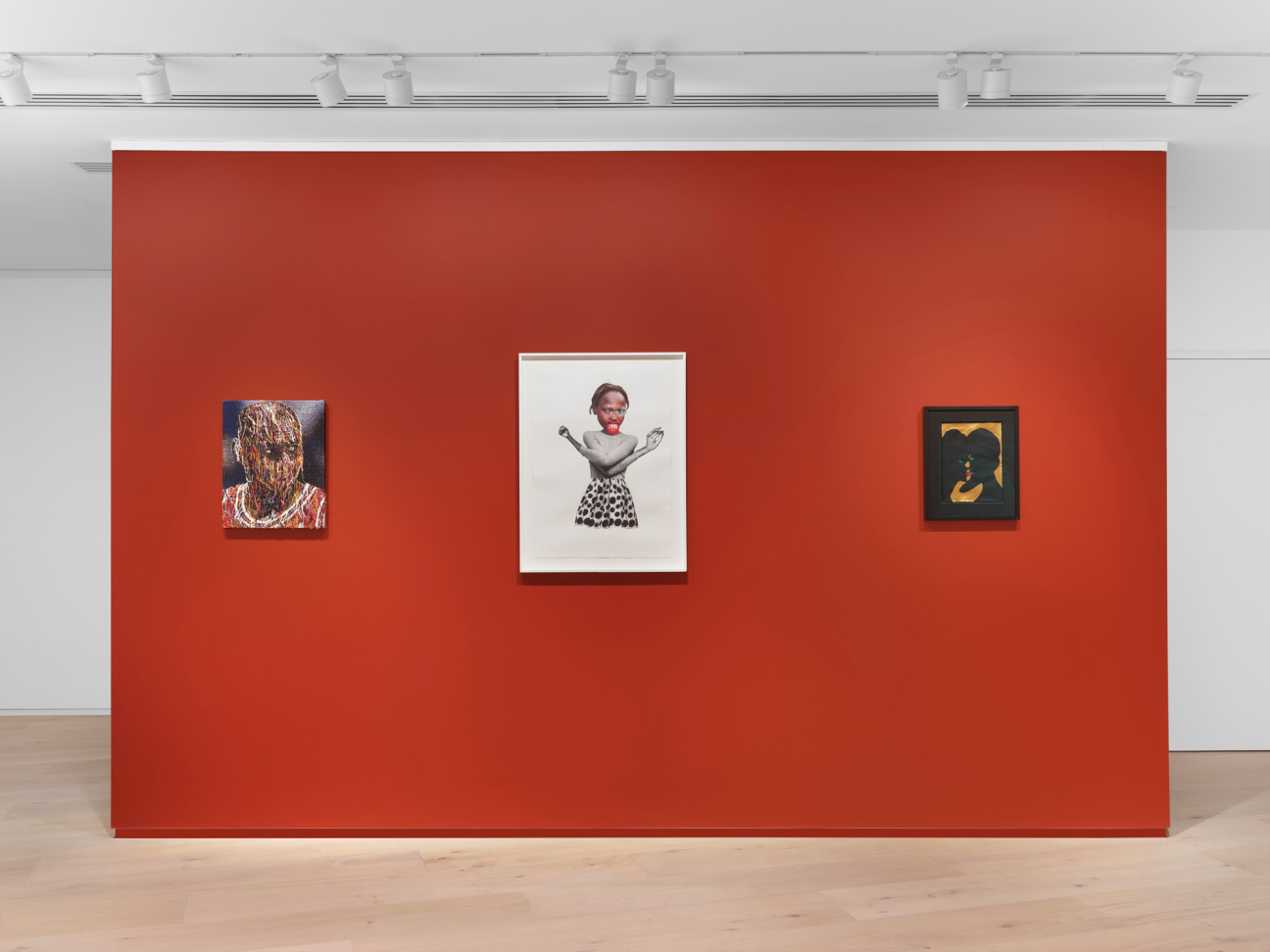
Akinkugbe: I think there should be as many Black figuration shows as there can be. Figuration is a constant throughout art history. It's not like people are going to stop painting other people.
Every exhibition that I've curated that's purely mine has a title that has been directly lifted from a song. I had one that was called “Baby Hair and Afros” from Beyonce's "Formation." Another was called, “You're My Sweetie, My Sugar” from a song by Bunny Mac. Music has been a huge part of your life: You've been a DJ and producer. How does music come into what you're doing now?
Brenya-Mensa: Music was my first creative foray. I went to an under 18s rave—I don't know if they have these anymore—but DJ Randall [was] playing drum and bass. I remember watching what he was doing and the effect it was having on the crowd. I was like, I don't know what he's doing, I don't know how he's doing it, but that's what I want to do. I didn't find out until after I'd been DJing for a while that my Dad always used to DJ. Then you're hearing things before they come out, which led to me starting an independent record label, and then through that I released some tracks as a collaborative producer. During lockdown, I wanted to do a show that was expressive of Black African diasporic music. So I played electronic music or traditional music from East Africa, South Africa, a bit of a mix. A lot of that is what I used for the restaurant. We would constantly be asked, “What is this playlist?” Music is essential to my practice. I'm the person that makes a new playlist every time they shower.
Akinkugbe: Your life has a soundtrack pretty much.
Brenya-Mensa: 110%. Because of the music, Sunday, when I wouldn't work, I would always cook. That ultimately led to me starting a supper club, which led to the restaurant. I have a habit—like a lot of creative people, probably yourself—of taking things that bring me peace and then creating versions of them that bring me stress. I personally don't really refer to myself as a chef: I just use interdisciplinary artist. Tatale was born out of a desire to put a marker down as a Black person doing Black food in an authentic way.
Akinkugbe: I think a lot of people are multidisciplinary artists. Everyone has their different ways that they are able to express their creativity. I remember recently someone was like, “You just need to do what's best for your practice,” and I thought, what? I'm not an artist. I can't have a practice. Then I thought about it and was like, Okay, there's curating, writing, podcasting, interviewing artists. They all have the same goal. So there is a practice, or something that underpins everything that I'm doing, even though it has all these different ways that it comes out.
Brenya-Mensa: How did you start @ablackhistoryofart? When did you realize, Oh shit, this is something?
Akinkugbe: I didn't think that it would gain much popularity because I couldn't see any appetite for it in my peers and teachers. I thought it was a way to research Black contributions to art history, because I really enjoyed when in second year I finally learned about five or six Black contemporary artists. They were addressing race in these ways that were abstract and resonated with my experiences. I hate saying I felt seen, but I really did. When I started posting on Instagram, it couldn't have been better timing, because more people were spending time on their phones, and there was the resurgence of BLM in June. Between February and August of 2020, it grew to 40K. Suddenly, the whole art world—the whole world—was turned to Blackness. By the time I finished my master's, I went straight into working on “Entangled Pasts [1768–now: Art, Colonialism and Change]” that just closed. Sometimes I pause and I'm like, This is literally all because I started an Instagram page when I was 19. Many people messaged me when I first started saying, “I never learned about Black artists,” people who are much older and around my age as well. Art history remains a very white, elite subject to do at university, but it doesn't need to be that way. That fuels me to keep going, because I know the problem isn't fixed.
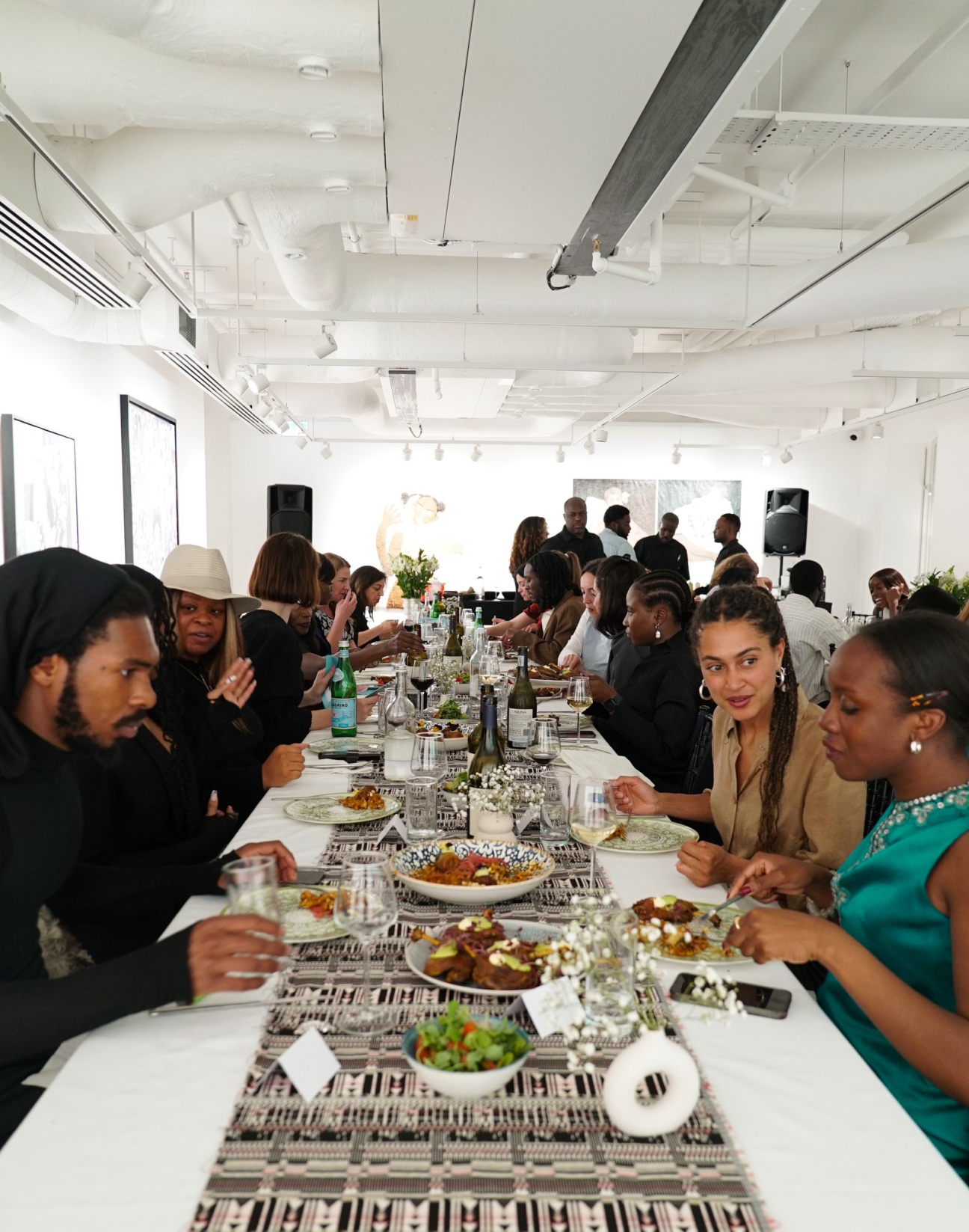
Brenya-Mensa: Bearing in mind your meteoric rise. What do you think the future looks like for you and your practice?
Akinkugbe: I do have a book coming out next year, and it embodies all the research I've done since starting the page. After that, I would really like to move into a project that is the opposite of writing, but I think it will always be the same or similar subjects to what I'm doing now. It will always center Black narratives. I have this strong urge to explore other media, film and documentary. I want to push myself to my creative limits. Then with @ablackhistoryofart, I want to keep posting for as long as Instagram stays relevant.
What about you? How do you envisage the evolution of what you're doing right now?
Brenya-Mensa: A new restaurant is not on the immediate horizon. I've been doing these dinners. I've been working on a new concept, something more experiential, which I'll be doing for you. I've been writing a lot over the last year and a half working on a book. It's part scrapbook, part memoir, part recipe book. A mishmash of things in my head.
You mentioned filmmaking: I did filmmaking at uni. I wanted to do it as a degree, but I have an African mother, so she said, “Do something that you can pay your bills with.” I did criminology, which I never used, but it gave her the certificate she could go and show off at church. Then I did film, so I've been delving back into that and thinking about where my creativity meets film, meets food, and what that could look like.
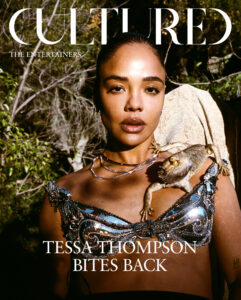
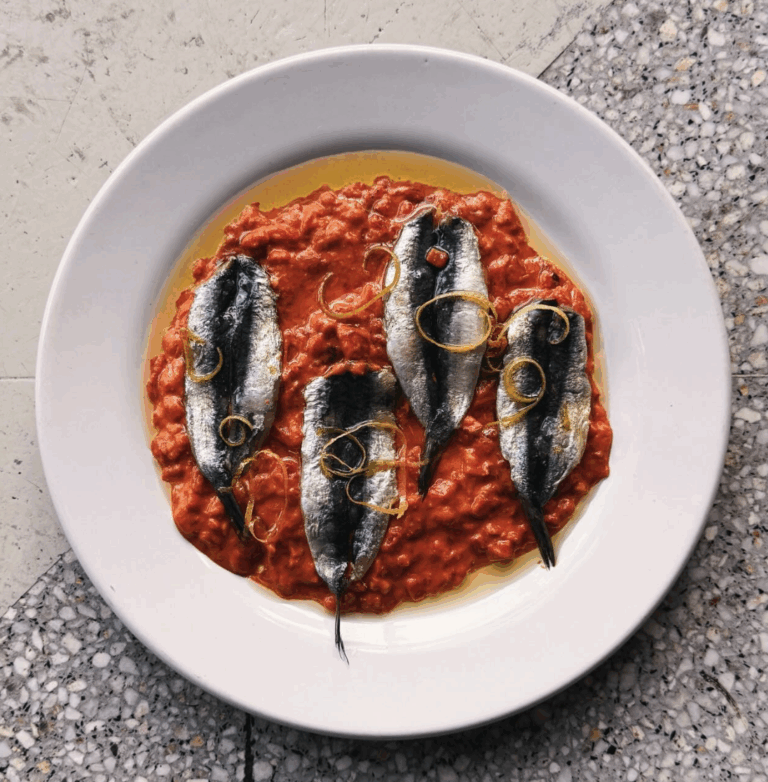
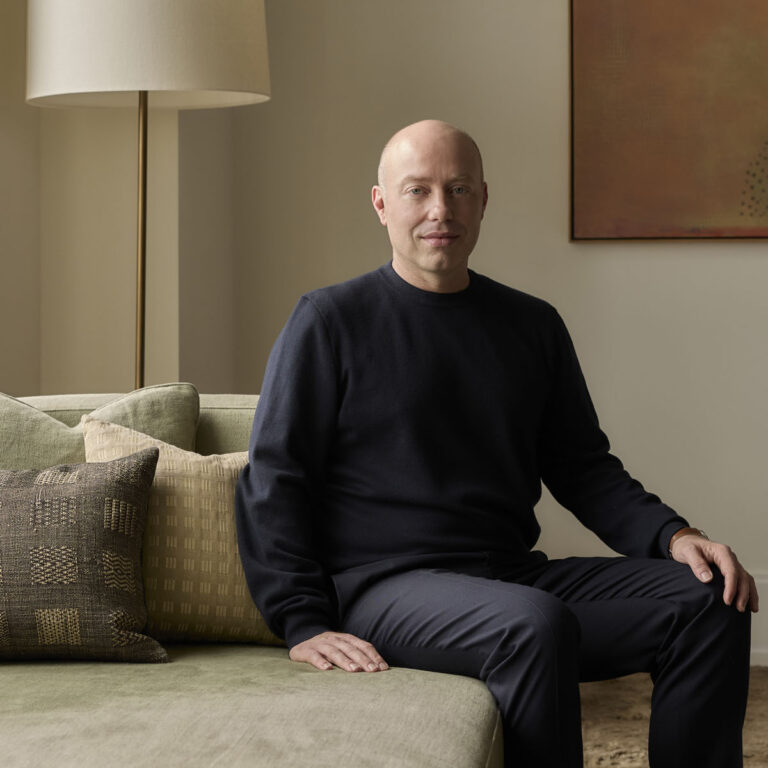
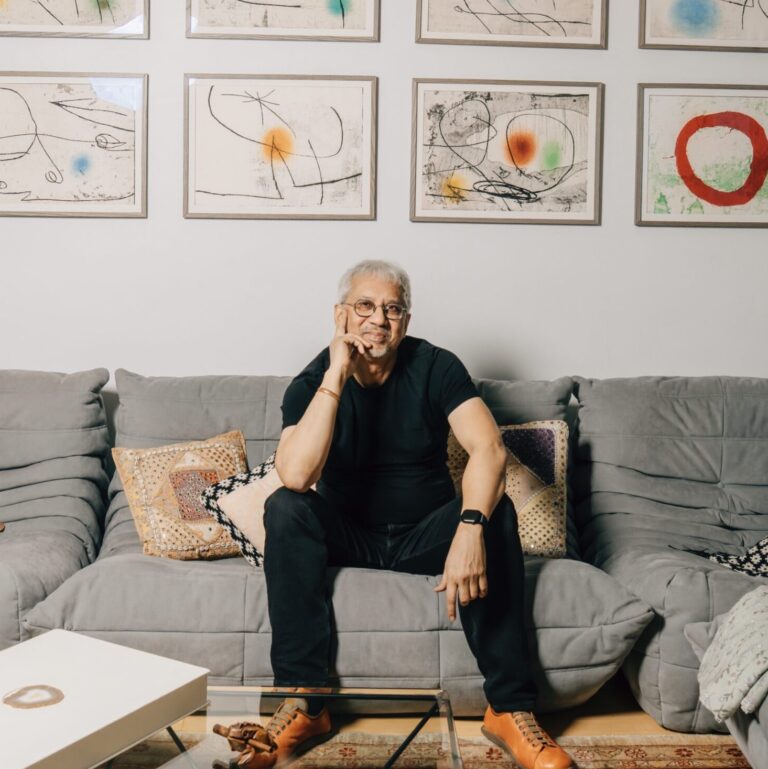
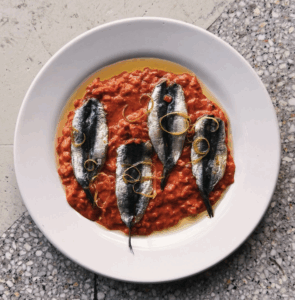
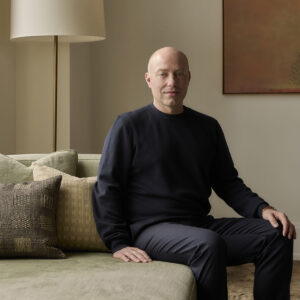
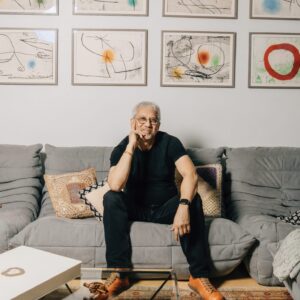

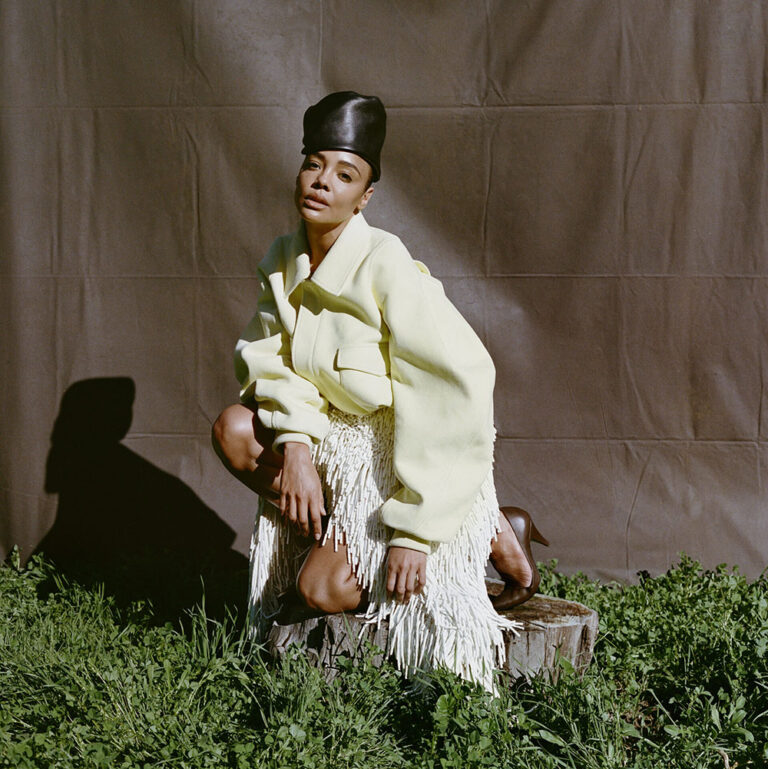

 in your life?
in your life?

